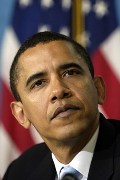Supreme Court Takes Jurisdiction Over “Jurisdiction”
 A bit overshadowed by all the hubbub over the oral argument in McDonald v. City of Chicago, the Supreme Court yesterday handed down an important copyright opinion in Reed Elsevier v. Muchnick. (But see Howard Wasserman, Marcia Coyle.) The court held that Section 411(a) of the Copyright Act, which requires registration of a copyright as a prerequisite to an infringement suit, is not “jurisdictional” — that is, failure to file a registration does not deprive a court of all power to hear a claim.
A bit overshadowed by all the hubbub over the oral argument in McDonald v. City of Chicago, the Supreme Court yesterday handed down an important copyright opinion in Reed Elsevier v. Muchnick. (But see Howard Wasserman, Marcia Coyle.) The court held that Section 411(a) of the Copyright Act, which requires registration of a copyright as a prerequisite to an infringement suit, is not “jurisdictional” — that is, failure to file a registration does not deprive a court of all power to hear a claim.
This might not initially sound significant; after all, a plaintiff who files an infringement claim on an unregistered copyright is still going to have the case dismissed, whether Section 411(a) is deemed a mere prerequisite to filing or jurisdictional. But the distinction matters in three types of cases: class actions where unnamed members of the class would include owners of unregistered works (the Muchnick situation); plaintiffs who seek an injunction against further infringement encompassing all of their works, registered and unregistered; and would-be defendants who file for a declaratory judgement against a copyright owner who hasn’t registered yet. All three of those seem like worthy candidates for a court’s consideration as a policy matter, but all three were impeded by a slew of lower court opinions holding that a failure to register deprived the court of all power to even hear such disputes. (Congratulations for the win are due to lawyers from my old firm: Chuck Sims, who argued the case before the Supreme Court, and Jon Baumgarten.)Read More »Supreme Court Takes Jurisdiction Over “Jurisdiction”
 Like
Like 
 (This is the 8th in a series of posts on Fairey v. Associated Press. See below for other posts in the series.)
(This is the 8th in a series of posts on Fairey v. Associated Press. See below for other posts in the series.)